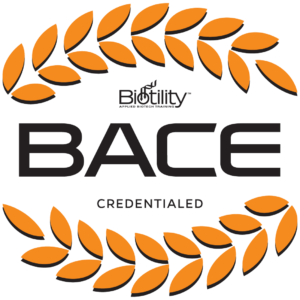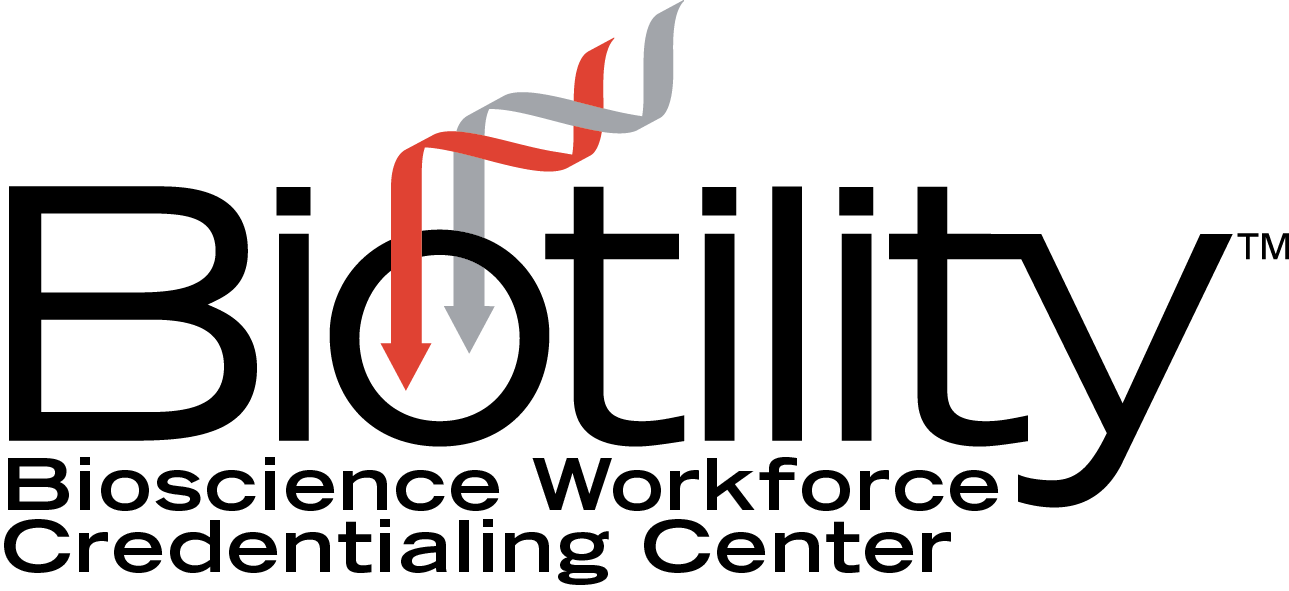The Biotechology Aptitude and Competency Exam (BACE) is an industry-recognized exam designed to assess core skills and knowledge sets identified by industry, and represented within the academic and performance standards of Biotechnology programs. The exam was originally vetted by the state of Florida’s industry organization, BioFlorida, which represents more than 3,000 companies and research organizations in the biotechnology, pharmaceuticals, medical devices, and bioagriculture sectors. Since its creation, BACE has been assessed by national and international companies as other states (and other countries) adopt the exam.
Candidate Resources

Supplemental Learning Materials
Hover over each resource card to find out more!
Amgen Biotechnology: History & Applications
Amgen Biotechnology: History & Applications
Amgen is one of the world’s leading biotechnology companies. They provide an excellent introduction to the field of Biotechnology, along with information about discovering and developing new medicines – the future of Biotech.
Bio-Rad: Video Tutorials - Skills & Techniques
Bio-Rad Video Tutorials
These videos provide training for many core biotechnology skills. Categories include Laboratory Skills, Microbiology & Cell Culture, DNA Structure and Analysis, Protein Structure and Analysis, and Immunological Applications.
Biotech Careers
Biotech Careers
Biotech Careers is an in-depth database of information about the biotechnology industry, organized around Careers, Job Areas, Internships, Stories & Blogs, Work Experiences, and Biotech Companies. Learn about the various career options in the field, and see what it is actually like to work in the biotechnology industry.
Regulatory Compliance and Quality Systems Overview
Regulatory Compliance and Quality Systems Review
CGMP are a system for ensuring that regulated healthcare products, such as drugs and medical devices, are consistently produced and controlled according to quality standards. This series covers the fundamentals of of GMP, the drug development process, the Code of Federal Regulations (CFR), the organization of departmental roles within a biotechnology company, and finally documentation and Good Documentation Practices (GDP).
Khan Academy: Biotechnology Unit
Khan Academy: Biotechnology Unit
Khan Academy’s biotechnology unit offers an introduction to modern biotechnology and how it is used in research, focusing on DNA structure and analysis. The unit covers techniques such as cloning, PCR, and DNA sequencing, as well as applications of these DNA-based technologies.
Learn.Genetics
Learn.Genetics
Videos, interactives, and walk-throughs cover an array of concepts including Genetics, Cell Biology, Plants, Ecology, Evolution, Human Health, and Neuroscience. The resources includes virtual labs (DNA extraction, gel electrophoresis, PCR, and microarray), as well as mathematics practice with probability, statistics, and modeling.
Omni Significant Figures Calculator
Omni Significant Figures Calculator
The Omni Significant Figures calculator provides an easy to use interface to determine the significant figures in a number or expression. Also provided are an overview of significant figures, the rules of their application, and how to use significant figures in calculations.
National Center for Biotechnology Information
National Center for Biotechnology Information
The National Center for Biotechnology Information (NCBI) advances science and health by providing access to biomedical and genomic information. NCBI is home to popular informatics tools such as BLAST, and literature resources such as PubMed. NCBI creates a variety of educational products including courses, workshops, webinars, training materials and documentation. NCBI educational events are free and open to everyone. All NCBI educational materials are available for anyone to re-use and distribute.
Science Primer: Serial Dilutions
Serial Dilutions
This resource provides an overview of serial dilutions, along with accompanying video tutorials, serial dilution practice problems, and an interactive widget that allows users to actively practice performing a serial dilution and the associated calculations.
<br>
<br>
<br>
Candidate Confidentiality Policy
Biotility maintains high levels of confidentiality in all operations, including the administration of the BACE. All records containing confidential information, such as personally identifiable information, financial information, or contracting information are secured physically under lock and key or electronically within the security of the University of Florida’s computer network. Access to information stored electronically is restricted to the appropriate personnel by password protection. Biotility does not share confidential information without written consent.






